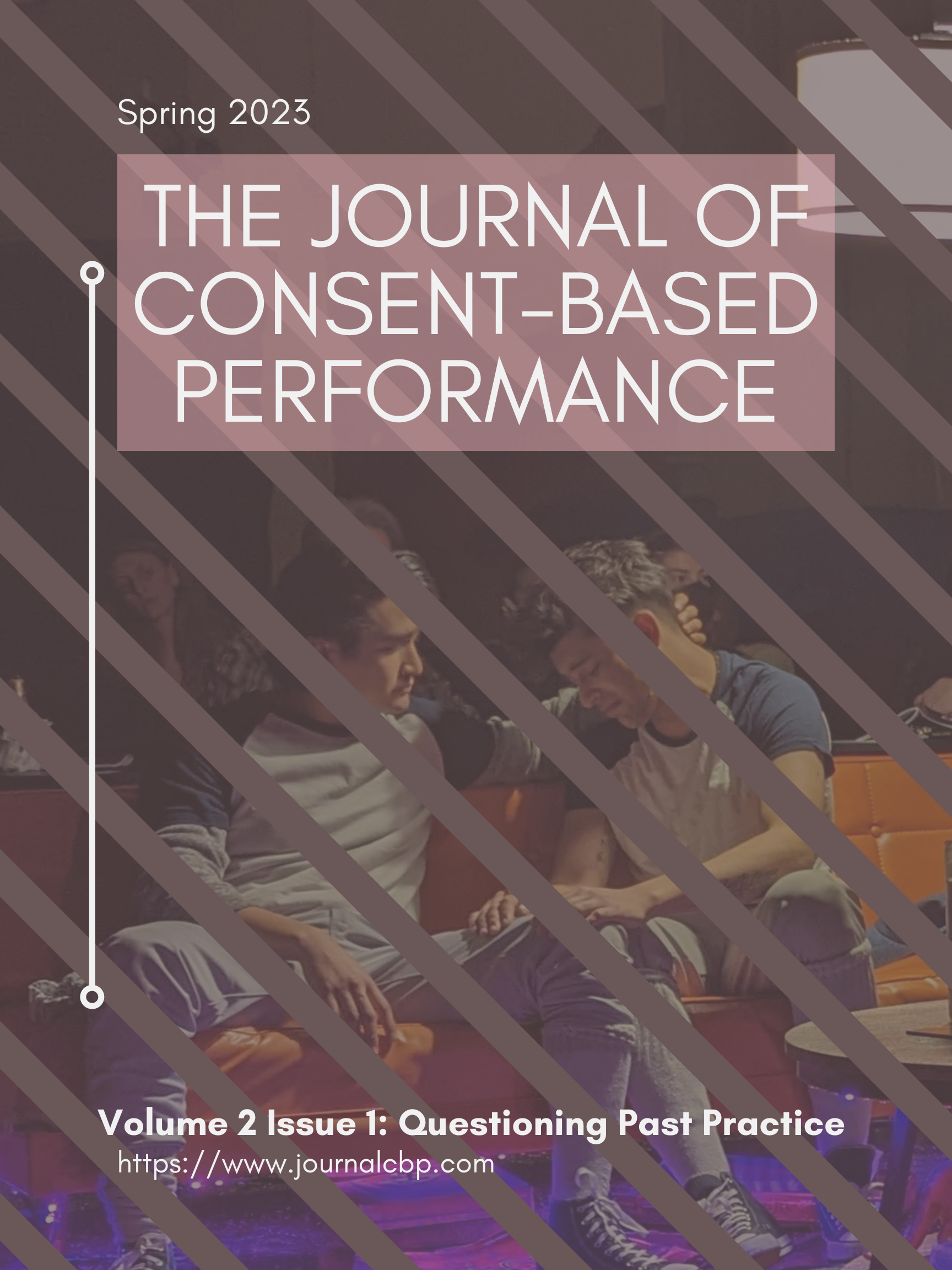New Repetitions Questions and Suggestions for a More Trauma-Informed Production Process
Main Article Content
Abstract
Trauma-informed care’s basic premise is that people are shaped by what has happened to them and what they have had to do to survive it. There is no shortage of examples to this effect, especially in our post-#MeToo and post-#WeSeeYouWAT culture. It’s easy to spot what isn’t working, but much harder to do something differently. That requires unlearning the decades of training and practice embedded in the performing arts. It requires us to deconstruct the perpetuated harm, justified by the cultural value of survival, grit, and the starving artist myth, though many of us, as educators, were taught those same rules when we were students. This article offers practical questions and suggestions for this process of deconstruction, specifically targeting every phase in the life cycle of a production.
Article Details
Authors retain copyright of submissions to and publications while granting JCBP a non-exclusive CC-BY-NC 4.0 license.

